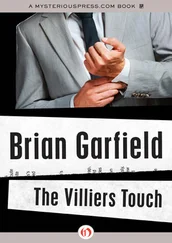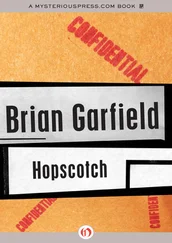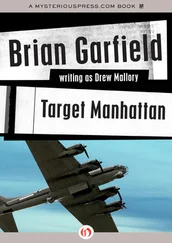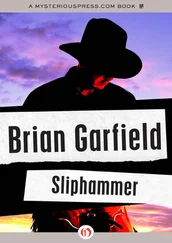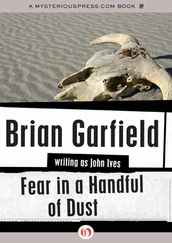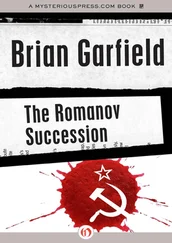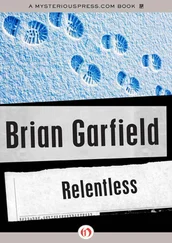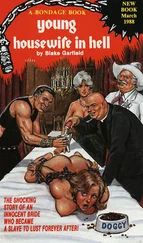Brian Garfield - Kolchak's gold
Здесь есть возможность читать онлайн «Brian Garfield - Kolchak's gold» весь текст электронной книги совершенно бесплатно (целиком полную версию без сокращений). В некоторых случаях можно слушать аудио, скачать через торрент в формате fb2 и присутствует краткое содержание. Жанр: Политический детектив, на английском языке. Описание произведения, (предисловие) а так же отзывы посетителей доступны на портале библиотеки ЛибКат.
- Название:Kolchak's gold
- Автор:
- Жанр:
- Год:неизвестен
- ISBN:нет данных
- Рейтинг книги:3 / 5. Голосов: 1
-
Избранное:Добавить в избранное
- Отзывы:
-
Ваша оценка:
- 60
- 1
- 2
- 3
- 4
- 5
Kolchak's gold: краткое содержание, описание и аннотация
Предлагаем к чтению аннотацию, описание, краткое содержание или предисловие (зависит от того, что написал сам автор книги «Kolchak's gold»). Если вы не нашли необходимую информацию о книге — напишите в комментариях, мы постараемся отыскать её.
Kolchak's gold — читать онлайн бесплатно полную книгу (весь текст) целиком
Ниже представлен текст книги, разбитый по страницам. Система сохранения места последней прочитанной страницы, позволяет с удобством читать онлайн бесплатно книгу «Kolchak's gold», без необходимости каждый раз заново искать на чём Вы остановились. Поставьте закладку, и сможете в любой момент перейти на страницу, на которой закончили чтение.
Интервал:
Закладка:
For one reason and another it was near the end of 1970 before I returned to Washington to begin work on what I intended to be the definitive popular history of the Siberian Civil War in 1918-20-Kolchak’s War. It was shortly thereafter that all this began. I remember the date quite clearly: January 26, 1971.
George Fitzpatrick, who has a Boston Irish sense of humor and a practical joker’s temperament, was throwing one of his bacchanals. He detested the hoary Washington practice of throwing every party “in honor of” someone. This one, I recall vividly, was thrown in commemoration of the date of Oscar Wilde’s death.
I had been weeks sorting the boring files of Graves’ Expeditionary Force in Siberia and I welcomed Fitzpatrick’s invitation in the hope the party would pull me out of my dulled mood.
Fitzpatrick is a Boston lawyer, a registered lobbyist; he keeps a suite of rooms year-round at the Hay-Adams. In the lobby that evening, conventioneers with name-tags on their pockets swarmed like prisoners of war and it was with great difficulty that I made my way to the bank of elevators.
A man arrived there just ahead of me; he put his finger on the depressed plastic square and it lit up. He turned and we looked at each other with the tentative smiles of people who think they recognize each other but aren’t quite sure.
Then he said, “Harry Bristow.” He pumped my arm in a politician’s handshake, left hand on my elbow. “Been a hell of a long time.”
I still didn’t remember him well enough to put a name with the face.
“I didn’t realize I’d put on that much weight. I’m Evan MacIver. Remember?”
I had to do the self-deprecating laugh and disbelieving head-shake; he was right, I should have remembered him-we’d roomed together one semester at Columbia.
MacIver brightened; we asked each other how we were, after which he said something complimentary about my books.
I remembered him as a self-possessed jaunty youth; a magpie with a raffish way. Now he had the somewhat defeated air of a worn-out roue: a big rumpled man with the jowls of a bulldog, the rheumy eyes of a bloodhound and a hard round belly on him. In profile his nose was an exact right triangle with a bit of a point on it. He was only two years older than I but he looked badly used at thirty-five. He wore a beet-hued tie and a gray flannel business suit as if he had been born in them; there’d been a day when he wouldn’t have been caught dead in conventional attire. And his manner somehow suggested that the good education he’d once absorbed had gone stale through shiftless indifference.
At Fitzpatrick’s floor the elevator doors slid open with a soft scrape. The hallway was wide and carpeted, intersected at intervals by painted doors. MacIver said, “You going to the Fitzpatrick bash? You know the way?”
“I’ve been here before,” I admitted and led him along the corridor. I made conversation: “What have you been up to?”
“Oh hell, you know how it is. A little of this, a little of that. I did time at grad school after you left. Few years overseas-Kyoto and Darmstadt, mainly. Married a German girl while I was stationed over there, got my inactive papers, came back here.”
“Any kids?”
“I got my wife and she’s got me.” It was wry because, evidently, there was truth in it. “Other than that no, no children. How about you?”
“No ties at the moment.” I saw no point in going into detail. I rang the bell and a laughing girl let us in.
Among those who know, an invitation to a Fitzpatrick party is a privilege. There is always a White House crisis or a Capitol Hill scandal to fuel conversations and the guest list insures that a good number of animated and heated disputes will break out in the course of the bibulous evening.
You never see quite the same crowd there twice; you’re kept on your toes by the presence of strangers who throw lethal darts into your best set-piece opinion speeches. A bore never gets a second invitation. There’s a slight artificiality to it-Fitzpatrick’s principal aim is to recreate the Algonquin round table-but nobody minds. The best sarcasms are honed here. Tomorrow’s political-humor newspaper columns often have their geneses around George’s bar. I believe it was at one of his early parties that the phrase was coined, “Would you buy a used car from this man?” Or at least legend would have it so.
Evan MacIver and I were separated almost instantly on entry; I found myself marched into the center of the main room with George Fitzpatrick’s thick arm thrown across my shoulders. Around me vied the fumes of his Black Label Cologne and Cutty Sark whiskey. George stopped to introduce me to a trio of allegedly beautiful people and left me there to find my own way to the bar; I don’t recall speaking to him again at all that night.
I was in the wrong mood for it; I knew that right away. I’d been immersed in dry research too long; wit, like love, is something you have to keep working at-otherwise it withers. I constructed some sort of drink and found a neutral corner in which to swizzle it reflectively. Across the room I saw a glamorous woman, the wife of a young Senator who wasn’t here with her, take offense at something someone said to her; she took a reef in her floor-length dress and swept straight out the door. When it closed behind her the entire room burst into raucous laughter: there was no such thing as an embarrassed silence at one of these bashes. Manners were suspended; anything went; she had broken the house rules and nobody had sympathy for her: the room echoed with ridicule when she returned for her forgotten coat.
A columnist buttonholed me and tried out a funny idea he was thinking of using. Evidently he was speaking to me but he seemed to be aiming somewhere over the top of my head. I laughed in the right places.
Another drink, too fast. I saw MacIver drifting through the crowd, looking curiously like an eavesdropper: he was out of place here, the company was too fast for him. I wondered where Fitzpatrick could have come across him. What did MacIver do nowadays? He hadn’t said. I had thought he was taller than he seemed now; perhaps events had shrunk him. He was burning his cigarettes away in long drags.
I found a chair in the lee of conversations; someone had just vacated it to charge into the midst of a spirited argument nearby. Laughter hung in the room in waves that bounced from one end to the other; the various knots of joke-tellers seemed to have found synchronization. I settled into the chair and went through the time-consuming ritual of getting my pipe going.
For a little while I let things drift by me. Then my attention drifted toward a young woman who sat in the corner opposite me, beside the window. Her head was bowed so that her dark hair shielded her face; people went by and there was an undrunk glass of something in her hand but she paid nothing any notice.
“She’s Israeli. Separated from her husband, not divorced. Twenty-eight, I think.”
It was Evan MacIver, suddenly at my side, sitting down hipshot on the arm of my chair. “She’s got a son in some Swiss boarding school. She’s staying in a consulate apartment out in Georgetown.”
“Why tell me all that?”
“Because you wanted to know.” His smile was cynical: he had a salesman’s knowledge of human weaknesses. “She speaks five or six languages but as far as I know she doesn’t know how to say ‘yes’ in any of them.”
“I gather you don’t like her much.”
“I can’t stand argumentative women,” MacIver said. “Her name’s Nikki something, I forget exactly. Weinstein, Eisenstein, something like that.”
“Nikki?”
“She’s only half Jewish. French mother, I think. Probably short for Nicole. She’s over here with some kind of fund-raising group, trying to get shekels out of the New York Jews to help spring Jewish emigrants out of Russia.”
Читать дальшеИнтервал:
Закладка:
Похожие книги на «Kolchak's gold»
Представляем Вашему вниманию похожие книги на «Kolchak's gold» списком для выбора. Мы отобрали схожую по названию и смыслу литературу в надежде предоставить читателям больше вариантов отыскать новые, интересные, ещё непрочитанные произведения.
Обсуждение, отзывы о книге «Kolchak's gold» и просто собственные мнения читателей. Оставьте ваши комментарии, напишите, что Вы думаете о произведении, его смысле или главных героях. Укажите что конкретно понравилось, а что нет, и почему Вы так считаете.

